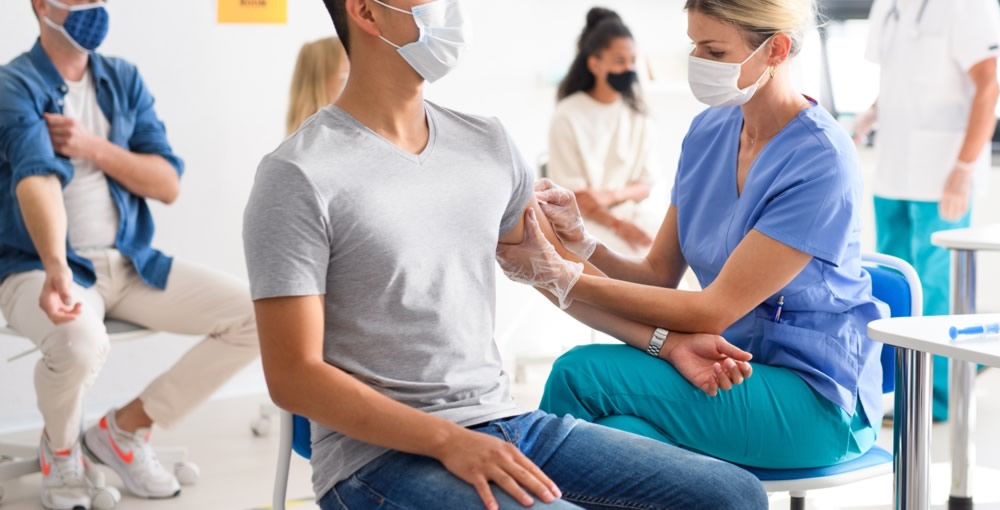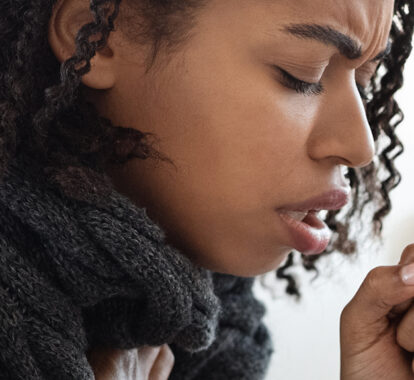A Physician’s Point of View: The changing face of COVID-19

The face of COVID-19 is changing in our clinics with less acute care and more focus on vaccinations, side effects from vaccinations, exposures and positive tests post vaccine and PCR testing for travel and athletic participation.
We are watching for another surge and the uptick from the UK strain B1.17. Hopefully, with more people getting vaccinated combined with all who have had the virus, we can stop the advance of the more contagious strains. With many people getting vaccines all at once, it is likely building a protective shell to keep COVID-19 out of our community.
COVID-19 asymptomatic testing
With the COVID-19 prevalence in our community the lowest it has been since March 2020, should we continue to test people for COVID-19 who do not have symptoms?
For example, we have not been doing many flu tests because the amount of flu cases are low. Could we apply the same logic to COVID-19 testing?
Normally, we do not test patients who are not sick. But the rapidly evolving pandemic called for action on all fronts, which provided testing access and peace-of-mind for patients and helped our local health departments track COVID-19. Epidemiologists generally monitor disease through community sampling using antibody blood testing. With COVID-19, we may see local health departments begin to enact this approach if the positivity rate remains low for 3-4 more weeks, and vaccinations increase.
However, research has shown that 30 percent of people who are COVID-19 spreaders are asymptomatic. If we don’t test them, 30 percent of the COVID-19 spreaders will not know to quarantine.
The idea of testing as many people as possible to catch the asymptomatic spreaders has some validity. Quarantining those who have been exposed to prevent spread in the 2-day pre-symptomatic period is key.
Vaccinations and positive COVID-19 test
If someone is fully vaccinated and it’s been at least 2 weeks after their 2nd Moderna or Pfizer vaccine, or their one and only Johnson and Johnson vaccine, or they tested positive for COVID-19 and it is less than 90 days out, what should you do if a curbside patient, exposed to COVID-19 now has a positive rapid antigen test?
Confirm the patient was exposed for more than 15 minutes at closer than 6 feet to someone who had COVID-19. If the answer is yes, and the patient has no symptoms, request a PCR test ask them to isolate until the test comes back. If the PCR test is negative, they need not quarantine as long as they have no symptoms. These patients have developed immunity, albeit not 100%. If the test is positive, they should complete the 10 days of isolation.
COVID-19 vaccine side effects
I have seen patients presenting with rashes after their vaccine. If the rash develops the next day for instance, it is not considered an immediate reaction and the patient can still have their second Pfizer or Moderna vaccine.
I had another patient present with persistent neck and right trapezius pain and fatigue 6 days after his first COVID-19 vaccine. This is a fairly consistent and normal side effect. He also had a minor itchy rash on his arms, and some minor upper respiratory symptoms. His rapid antigen test was negative.
Note that physicians at MD Anderson were reporting seeing patients with axillary lymphadenopathy after COVID-19 vaccines. They suggest postponing mammograms 6-10 weeks after COVID-19 vaccines.
Another patient developed diarrhea the same day she received the Johnson & Johnson vaccine on 3/6/21. She then developed a sore throat, headache, body aches, and chills, which she chalked up to vaccine side effects. She tested positive for COVID-19 on 3/12. Her husband was positive on 3/18. Her symptoms were resolved but at her visit it was still less than 10 days from symptom onset. She wanted to know if she could see her husband and children, as she was isolating elsewhere. I told her she did not need to isolate from her husband as they could not “give it back” to one another. She should still isolate from others until her 10 days is completed.
Helping patients understand when to isolate and quarantine in light of previous disease or previous vaccine is part of our medical role. It goes to show having the vaccine does not fix everything and testing is still needed for symptoms other than a few days of fever and body aches and fatigue.
New COVID-19 treatments
Molnupiravir is an antiviral that could be like Tamiflu for COVID-19 to inhibit replication of the SARS-CoV-2 virus. Yea!!





